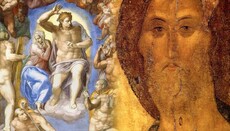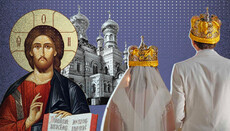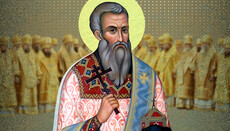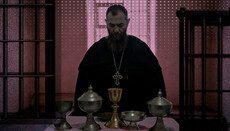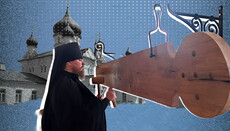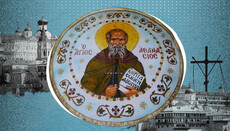Voice without the ambon: Does the Church need lay preaching?
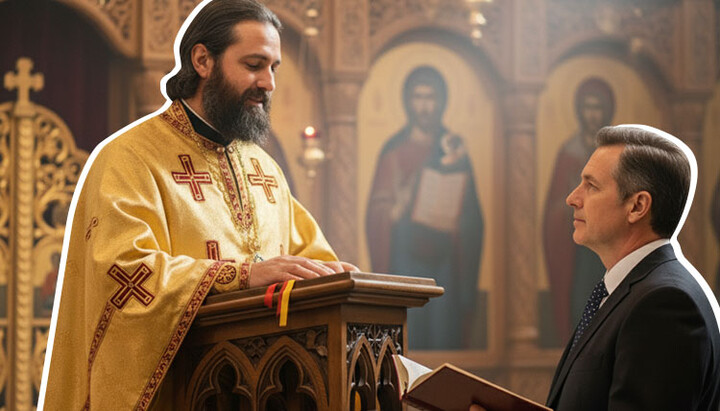
How can laypeople participate in the Church’s mission and why is it important for revitalizing parish life?
The word of the pastor traditionally sounds from the ambon, but can a layperson have the right to deliver a liturgical sermon? Some researchers categorically reject this, referring to the 64th Canon of the Trullan Council (late 7th century) and later interpretations of this canon. However, there are other viewpoints.
Canons and the history of lay preaching
The primary guide in any question remains for us the Holy Scripture. In the book of Acts, we see that from the earliest days of the Church's existence, the Holy Spirit bestowed various charismatic gifts.
Alongside gifts such as prophecy or speaking in tongues, there was also teaching. And it was not given only to the apostles: laypeople could also instruct the community with the word.
Later, in Chapter 8, it is mentioned that from the beginning of the persecution following the death of the first martyr Stephen, "those who were scattered went about preaching the word" (Acts 8:4). This also indicates that the preaching of the Gospel was not initially limited only to the circle of apostles and their closest disciples.
The biblical idea of the right of laypeople to deliver a liturgical sermon can also be seen in the words of the Apostle Peter about the universal "royal priesthood" of Christians. "But you are a chosen people, a royal priesthood, a holy nation, God’s special possession, that you may declare the praises of him Who called you out of darkness into His wonderful light" (1 Peter 2:9).
The calling to proclaim the Word of God, as we see, is not limited to ordination.
Laypeople, being part of the "royal priesthood," are not deprived of the spiritual right to preach. This was the case in the early centuries of the Church.
It is no secret that there is a close relationship between Christian worship and synagogue worship. The apostles themselves initially attended the Jerusalem temple, and many forms and principles of public service in the early Church were borrowed from Jewish gatherings.
In these gatherings, every adult male had the opportunity to read the Scripture and explain its meaning to the listeners. Christ Himself acted in this way during His earthly life. The Evangelist Luke recounts one such instance that occurred in the synagogue of Nazareth (Luke 4:16–21).
In the "Apostolic Constitutions," this feature of Christian Liturgies is reflected in the following command: "Let him that teaches, although he be one of the laity, yet, if he be skilful in the word and grave in his manners, teach; for 'they shall be all taught of God'" (Book VIII, 32).
The well-known church historian Eusebius recounts the protest of Bishop Demetrius of Alexandria against Origen preaching in the temple at the request of the Palestinian bishops – Alexander of Jerusalem and Theoctistus of Caesarea. In their response letter, they explained their invitation as follows: "You also add in your letter that it has never been heard, nor is it customary now, for laypeople to preach in the presence of bishops: we do not understand how you can so openly speak untruth? Holy bishops, as soon as they found people capable of benefiting the brethren, invited them to preach to the people..." (Eusebius. Church History, VI, 19.)
Unfortunately, history also knows problems that arose from such preaching: it happened that people, possessing the talent of speech but lacking a solid theological foundation, led listeners astray.
To protect the Church from heresies and false teachings, councils began to prohibit laypeople from preaching from the ambon.
This is how the well-known 64th Canon of the Trullan Council appeared: "It does not befit a layman to dispute or teach publicly, thus claiming for himself authority to teach, but he should yield to the order appointed by the Lord, and to open his ears to those who have received the grace to teach, and be taught by them divine things."
Clerics, of course, could also at all times make inaccuracies, indulge in idle talk, or false ideas, but the risk of this was even higher for laypeople who did not have specialized theological education. This is why the Church's caution in this matter seemed quite justified.
The Principle of usefulness and modernity
At the same time, the Church always operates on the principle of reasonable application of canons. As the outstanding 19th-century scholar V. V. Bolotov wrote: "What is beneficial for the Church is canonical." Therefore, if something brings real benefit, prohibitions could be softened. Over the centuries, we see examples where, with the blessing of a bishop, educated laypeople delivered sermons, helping to preserve faith in difficult historical periods. Thus, in the 16th–17th centuries in the western regions of Ukraine, under the pressure of the Union, lay preaching in temples played a significant role in preserving Orthodoxy.
The Local Council of 1917–1918 recognized the right of a layperson to preach during worship with the blessing of the ruling bishop or rector. However, the fact of permission does not mean that it is a universal right for everyone who can speak beautifully.
For preaching in the church, what matters most is not rhetorical talent, but the experience of inner work, a life of prayer, participation in the Sacraments, and the struggle against the passions.
Only then does the word cease to be a dry retelling from books and becomes a living testimony born from one's own spiritual experience.
Such a word from a layperson, as rare but still existing practice shows, can reach hearts not because it is more weighty than the pastor's, but because it is closer and more understandable.
Conclusion
Today, in most parishes, there are educated, church-going, spiritually sober, and prayer-rooted people. Under the guidance and patronage of the rector, they could be taught to become parish preachers.
Such a missionary step, on the one hand, would become a serious means of catechization and a supplement to the pastor's word. On the other hand, it would raise the level of church education in the parish and contribute to a deeper exploration of the topic, in an attempt to present it in a way that touches the heart of the neighbor.
I think for many (including young parishioners), this would become an example of living service to God, an inspiration to speak about faith.
Perhaps even some Protestants would return to Orthodoxy, seeing the opportunity to speak about Christ, but with an Orthodox understanding and new experience. Such a step could significantly raise the level of church education, strengthen the missionary spirit of the community, and enliven the very fabric of parish life. In short, it gives us plenty to think about.
